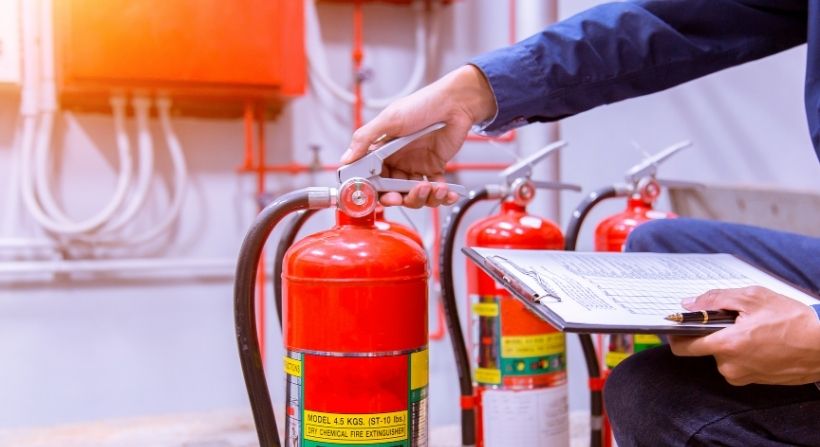Shree Engineering Work | Gensets & Fire Extinguishers

Do Your Employees Know How to React if Your Fire Alarm System Goes Off?
If you are a business owner, you must have a code-compliant and working fire alarm system to protect customers and employees. The NFPA Codes dictate fire alarm system requirements. What’s important is that your employees understand the basic signals of the system and what to do if the system alarms. A fire alarm system is designed specifically to notify occupants if a fire occurs. It will also notify the central station which will call the fire department. Many employees and visitors to your building might be unaware of how to exit the building if the system alarms. Read on to learn more!Initiating Devices with Your Fire Alarm System
Initiating devices activate your fire alarm system. This can happen automatically or manually, through smoke detectors, heat detectors, or manual pull stations. Sprinkler systems can activate your system through water flow devices or pressure switches. These are automatic initiating devices. You have probably fire alarm pull stations in commercial buildings. This is known as a manual initiating device. They’re required for most facilities depending on the occupancy type. Once a fire alarm is initiated, notifications will follow shortly after.Types of Fire Alarm System Notification Appliances
Your building’s fire alarm system will notify the occupants of your building that a fire emergency is occurring. Here is how they will be notified:- Visual signals: by strobe lights or visual message notification.
- Audible alerts: sirens, horns, speakers, and bells.
- Voice evacuation: loudspeakers transmitting a pre-recorded or live message.
Be Aware of Any False Alarms
Frequent false alarms damage the efficiency and credibility of a fire alarm system because occupants begin to ignore emergency signals. Building owners can stop fire alarm system false alarms by:- Making sure the system has been designed and installed by a competent, professional company.
- Keeping smoke doctors free of debris and dust.
- Installing protective covers for all pull stations.
- Engaging a reliable and competent fire protection company to regularly test and inspect the system.
Get in Touch
You will find yourself working in a true partnership that results in an incredible experience, and an end product that is the best.
Call us on
+91 9161777331
Email us
INFO@

Post A Comment